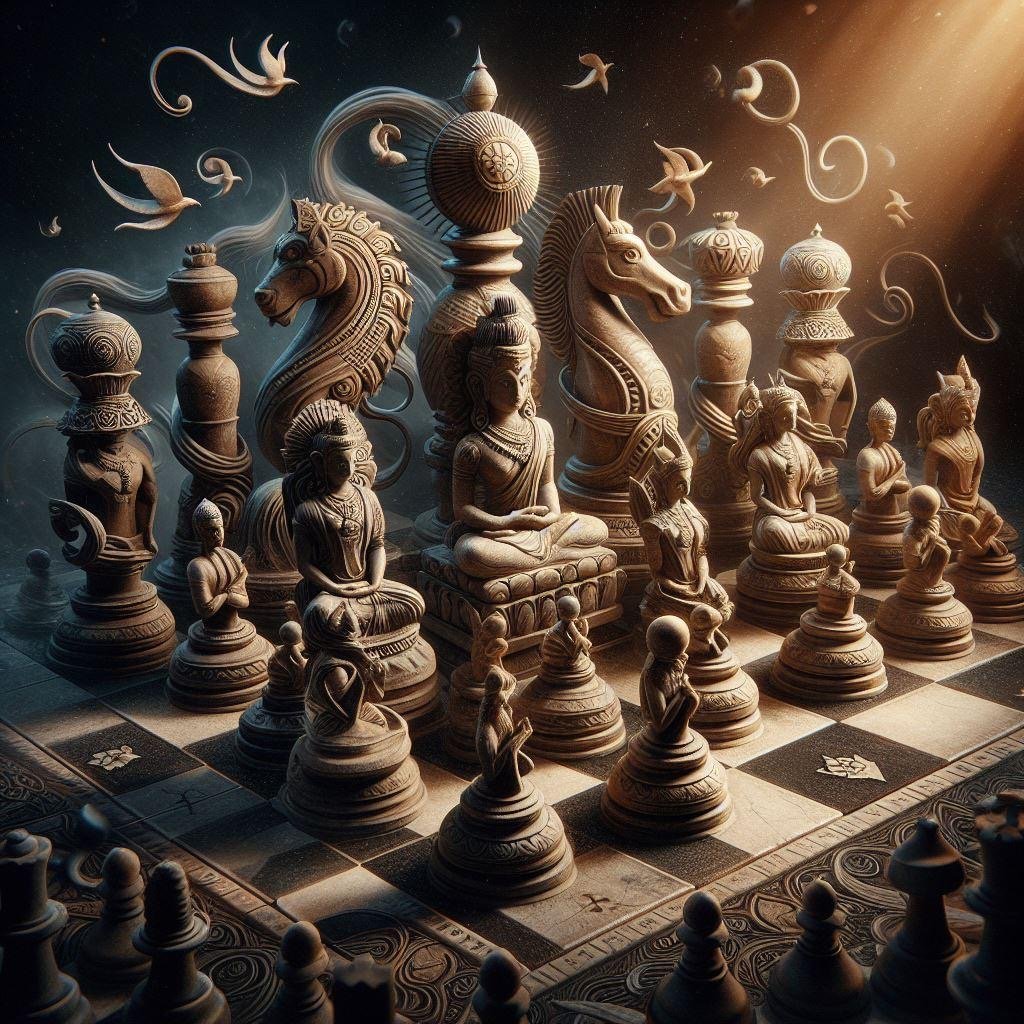Chess is a timeless game of strategy and intellect with a rich history spanning over 1500 years. Its origins can be traced back to ancient India, where it was known as “Chaturanga” around the 6th century AD. Initially, it was played on a board of 8x8 squares, resembling the modern chessboard, and featured pieces representing different arms of the Indian military.
As trade routes expanded, chess spread across Persia, where it was dubbed “Shatranj.” The game evolved with cultural influences, including the introduction of new pieces like the queen and bishop.
In the 9th century, Arab scholars translated Indian texts on chess into Arabic, further popularizing the game across the Islamic world and eventually into Europe during the Middle Ages.
By the 15th century, chess underwent significant changes in Europe, including the introduction of modern rules like pawn promotion and castling. The game became a symbol of nobility and intellect, played by kings and scholars alike.
In the 19th century, formalized tournaments began, leading to the establishment of the World Chess Championship in 1886. Throughout the 20th and 21st centuries, chess saw a surge in popularity with the rise of international competitions, iconic players like Bobby Fischer and Garry Kasparov, and the advent of online platforms, making the game accessible to millions worldwide.
Today, chess continues to captivate players of all ages, cultures, and backgrounds, remaining a timeless pursuit of strategic mastery and mental agility.

